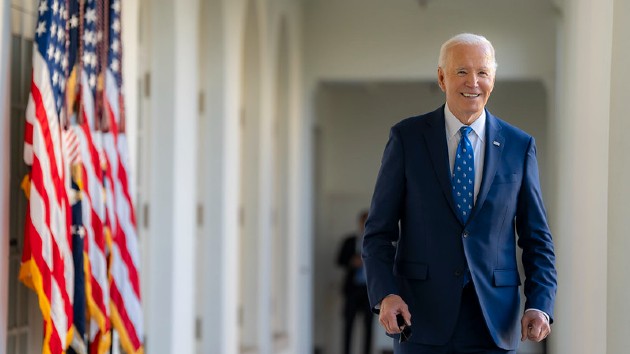Musk, Ramaswamy eyeing federal remote work policies to help slash $2T from budget
Written by ABC Audio ALL RIGHTS RESERVED on December 5, 2024

(WASHINGTON) — Work-from-home policies came under fire from X and Tesla CEO Elon Musk, as he and Republican businessman Vivek Ramaswamy took their plans to reduce government waste to the floors of Congress Thursday.
The businessmen, who President-elect Donald Trump selected to lead an outside advisory board called the Department of Government Efficiency (DOGE), attended several closed-door meetings with GOP senators and House members to sell their plans to cut as much as $2 trillion from the federal budget of what they called waste.
“I think we should make sure we spend the public’s money well,” Musk told reporters between the meetings.
Musk posted on his social media platform X from inside the Capitol about what he and Ramaswamy say is a key issue for DOGE: The number of federal employees working from home.
The Federal Office of Management and Budget released a report in August that found “as of May 2024, approximately 50% of federal workers worked every day in roles that are not eligible for telework, including those who work onsite providing healthcare to our veterans, inspecting our food supply, and managing Federal natural resources.”
Musk shared a new report from Sen. Joni Ernst, R-Iowa, the chair of the Senate DOGE caucus, which claimed only 6% of federal workers show up in person to work on a full-time basis. Many others work from home part-time, and roughly one-third work from home full-time, according to the report.
“If you exclude security guards & maintenance personnel, the number of government workers who show up in person and do 40 hours of work a week is closer to 1%! Almost no one,” Musk posted in response to the report.
Ernst’s report includes several anecdotes and alleged social media posts about federal employees who worked from home, including a Department of Veterans Affairs manager who posted a photo of himself working from a bathtub. Ernst’s team included the photo in their report.
The OMB report found that “telework-eligible personnel spent approximately 60% of regular, working hours inperson, at agency-assigned job sites.”
House Speaker Mike Johnson said he agreed with Musk’s stance on work-from-home policies for federal workers and floated a claim, without any citation, that only 1% of federal workers were in their office.
“You will see a demand…that federal workers return to their desks. That’s just common sense,” he said at a news conference in between the meetings.
Musk, who brought his son X to the proceedings, and Ramaswamy walked past reporters before the news conference began with Musk carrying his son on his shoulders.
Musk has been a staunch opponent of work-from-home policies and removed such policies from his businesses, including X. He threatened layoffs for X employees who did not comply with his policy, which instructed any special requests for remote work needed to be reviewed by him before approval.
Johnson praised DOGE’s goals and said Thursday’s meetings were the first of many among Washington lawmakers.
The speaker dodged questions about pushback from federal workers’ unions and possible cuts to social services and said he would not disclose more details about the proposed changes to the budget but stressed that the nation needed a “leaner government.”
“Government is too big and it does almost nothing well,” he said.
However, when it came to more specifics, Musk and Ramaswamy didn’t appear to give lawmakers more concrete details.
“We don’t live in a democracy; we live in a bureaucracy,” Musk told members of the House and Senate in the town hall-style meeting, according to sources with knowledge of the meeting.
In an “open mic” session, lawmakers then pitched Musk and Ramaswamy on a wide variety of places they’d like to see spending cuts, but there was little clear consensus.
“The suggestions have been all over the board. I wouldn’t say that there’s been a single common narrative yet,” Rep. Dusty Johnson, R-S.D., told reporters.
Republicans were adamant the proposed sweeping cuts wouldn’t impact entitlement programs like Social Security and Medicare, despite the fact they’re by far the largest aspects of the federal budget.
Some Republicans said they were skeptical Musk and Ramaswamy could achieve everything they’ve pitched, but they wanted cuts to begin no matter what.
“The way you eat an elephant is you do it one bite at a time, right? And we have to start. And so I don’t know if it’s going to be $2 trillion that they’re going to be able to cut out of the federal budget, but we need to start cutting waste, inefficiency, bloated bureaucracy from the federal government, it’s time that we do it,” Rep. Carlos Gimenez, R-Fla., told ABC News.
Rep. Tim Burchett, R-Tenn., told ABC News there are challenges ahead for their proposals.
“But the problem is in that room, you could have a great plan but not have the votes to do it,” he said.
Copyright © 2024, ABC Audio. All rights reserved.

 KVSP
KVSP 




